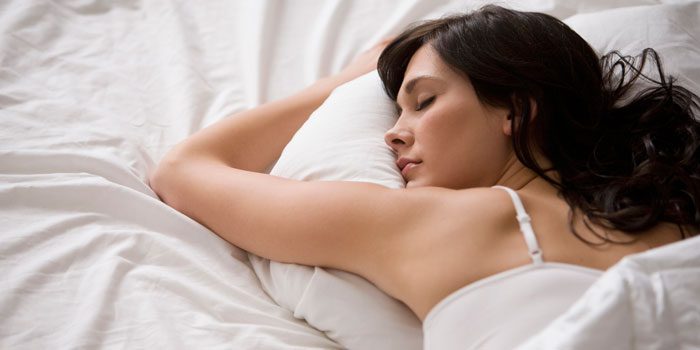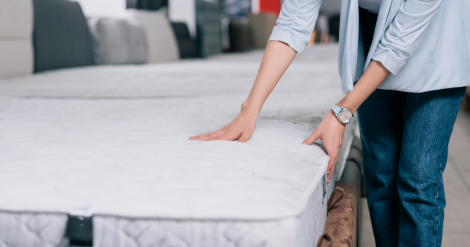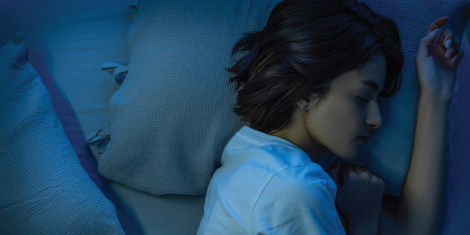No products in the cart.

6 Environmental Factors That Disrupt Sleep
Many people have trouble obtaining a restful night’s sleep. While many people look to internal factors as being the culprit, the problem is often external. Once you and your doctor have excluded any sleep disorders as the problem, an easy next step is to consider the following external factors:
- Eliminate Any Light: Even the smallest amount of light has the power to disrupt your sleep cycle. Even if you’re not aware of your alarm clock light or tiny nightlight while you sleep, they may still be influencing your internal clock. Try unplugging all digital devices at night that create light and invest in some black out curtains. If parting with your devices at night is too difficult try using a thick eye mask instead.
- Night Shift Work and Jet Lag: Both working night shifts and traveling outside of your timezone can greatly impact your internal clock. Insomnia often accompanies both instances with people often reporting falling asleep at inappropriate times. While neither jet lag or night shift work is easily avoided, in a future blog post we will cover ways to help these workers feel more rested.
- Invest in a Dog Bed: Pets often toss and turn all through the night leaving their owner feeling less than rested in the morning. It may be tough at first but training your pet to sleep in a designated area outside of your bedroom can greatly improve your sleep.
- Check Your Medications: Never discontinue a medication without speaking with your doctor first. However, it is worth noting that several medications can impact sleep quality. Antihistamines, beta blockers, alpha blockers and antidepressants can all affect your sleep. If you find that you think this is a problem, it never hurts to discuss this with your doctor.
- Cut Back on Caffeine: Caffeine, nicotine and alcohol all notoriously disrupt a person’s quality of sleep. If you think you may be caffeine sensitive try cutting out caffeine after noon. It is important to note that even decaffeinated tea or coffee often contains remnants of caffeine.
- Improve Your Sleep Environment: Your bedroom environment greatly impacts your sleep quality. Try to keep the temperature cool but not cold so your body has an easier time regulating sleep. Research suggests that somewhere around 65 degrees Fahrenheit is ideal for body temperature regulation. White noise machines can be valuable to sleep but make sure the volume is turned quite low. Lastly, as a general rule never work or check emails from your bed. This will eventually train your mind to associate your bed with sleep.
You might also be interested in:

-
/
Rest for Success: When to Bid Adieu to Your Old Mattress
Rest for Success: When to Bid Adieu to Your Old Mattress We spend about a third of our lives in bed, and the quality of our sleep directly impacts our overall well-being. One often overlooked factor in achieving a good night’s sleep is the condition of our mattress. As the years go by, our faithful […]
Read more
Unveiling the Truth: Busting Common Mattress Myths
Unveiling the Truth: Busting Common Mattress Myths A good night’s sleep is crucial for overall well-being, and the right mattress plays a pivotal role in achieving that. However, amidst the quest for the perfect mattress, numerous misconceptions have caused mattress shoppers confusion when searching for the right mattress. Our latest blog unravels the truth behind […]
Read more
-
/
How Medical Bed Mattresses Aid in Post-Surgery Recovery
How Medical Bed Mattresses Aid in Post-Surgery Recovery Surgery can be a daunting experience, regardless of its nature or severity. The period following a surgical procedure, known as post-surgery recovery, is crucial for achieving the best possible outcome. While factors like rest, nutrition and pain management are widely acknowledged as vital, the role that medical […]
Read more
-
/
Meeting Medical Mattress Quality Standards
Meeting Medical Mattress Quality Standards Medical mattresses are designed to meet specific quality standards to ensure patient safety, comfort and hygiene. These standards are established to address the unique needs of healthcare environments as well as the patients utilizing these mattresses. Some key quality standards for medical mattresses include: Infection Control Standards Water […]
Read more